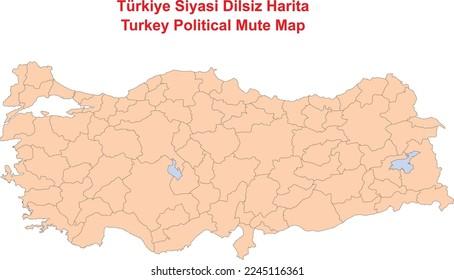In a rapidly evolving digital landscape marked by the surge of misinformation, TĂ¼rkiye’s younger generation is increasingly advocating for a stronger governmental role in combating disinformation. Recent surveys reveal that youth across the country favor state intervention to regulate and address misleading content online, signaling a shift in public sentiment towards trust in institutional measures. This emerging trend highlights the growing awareness among young Turks of the challenges posed by false information and their willingness to support official efforts to safeguard the integrity of information in the digital age.
TĂ¼rkiye’s Youth Demand Stronger Government Action to Combat Disinformation
Recent surveys reveal a compelling trend among TĂ¼rkiye’s youth: an overwhelming majority advocate for more robust government initiatives to tackle the growing threat of disinformation online. With social media platforms often serving as primary news sources, young people express concern over the ease with which false information spreads, impacting public opinion and social cohesion. Their calls focus on enhanced regulatory frameworks, improved digital literacy programs, and collaboration between state institutions and tech companies to ensure the integrity of information circulating in digital spaces.
Key demands from TĂ¼rkiye’s youth include:
- Stricter monitoring of false content on major social media networks.
- Transparent fact-checking mechanisms endorsed by official entities.
- Educational campaigns integrated into school curricula to build critical thinking skills.
| Demand | Percentage of Youth Support | Priority Level |
|---|---|---|
| Government Regulation | 78% | High |
| Digital Literacy Education | 65% | Medium |
| Collaboration with Tech Firms | 70% | High |
Analyzing the Impact of Social Media on Misinformation Among Young Turks
Recent studies highlight a growing concern among TĂ¼rkiye’s youth regarding the pervasive spread of misinformation on social media platforms. Despite being digital natives, many young Turks express skepticism about the accuracy of online content, often encountering conflicting narratives across various channels. This demographic exhibits a distinctive split in trust, showing caution towards unverified sources but simultaneously struggling to differentiate between credible news and fabricated stories. Social media’s instantaneous nature and algorithm-driven feeds are seen as significant contributors, amplifying falsehoods at unprecedented rates.
In response, there is a marked preference among young Turks for a more active government role in combating disinformation, signaling support for initiatives that involve regulatory frameworks and fact-checking mechanisms. The following table outlines key attitudes from a recent national survey, revealing their stance on responsibility for controlling misinformation:
| Entity | Support Level (%) |
|---|---|
| Government Regulation | 68 |
| Social Media Companies | 22 |
| Individual Users | 10 |
Moreover, young Turks emphasize the importance of education and media literacy to empower users in identifying and resisting false information. Their viewpoint suggests a blend of authoritative oversight coupled with grassroots awareness efforts as the most effective strategy to curb misinformation’s impact in the digital age.
Policy Recommendations for Enhancing State Measures and Digital Literacy Programs
To effectively counter the rising tide of disinformation, it is essential for policymakers to strengthen collaboration between state institutions and educational bodies. Implementing rigorous fact-checking frameworks and providing transparent communication channels will foster trust and credibility among TĂ¼rkiye’s youth. Moreover, integrating digital literacy curricula into schools nationwide can empower young citizens to discern credible sources from misinformation. Such programs should emphasize critical thinking, source evaluation, and responsible social media usage, ensuring that digital natives are equipped to navigate the complex information environment.
Additionally, tailored workshops and community outreach initiatives can bridge the gap between digital literacy theory and practical application. Below is an outline of key policy priorities to be adopted across governmental and educational sectors to create a more resilient information ecosystem:
- Standardized digital literacy guidelines adapted to various education levels
- State-funded media verification units collaborating with tech platforms
- Public awareness campaigns targeting misinformation hotspots
- Incentives for educational innovation in digital curricula development
| Policy Area | Key Initiative | Expected Outcome |
|---|---|---|
| Education | Mandatory digital literacy courses | Enhanced critical thinking skills |
| Government | Establishment of fact-checking units | Increased public trust in official communication |
| Community | Workshops and outreach programs | Broader awareness and participation |
To Conclude
As TĂ¼rkiye’s youth increasingly recognize the challenges posed by disinformation, their growing support for a proactive state role signals a shift in public expectations towards media regulation and information integrity. This evolving perspective underscores the importance of collaborative efforts between government, civil society, and technology platforms to safeguard the information landscape. As the country navigates these complexities, TĂ¼rkiye’s young generation stands at the forefront, advocating for transparency and accountability in the fight against false information.















